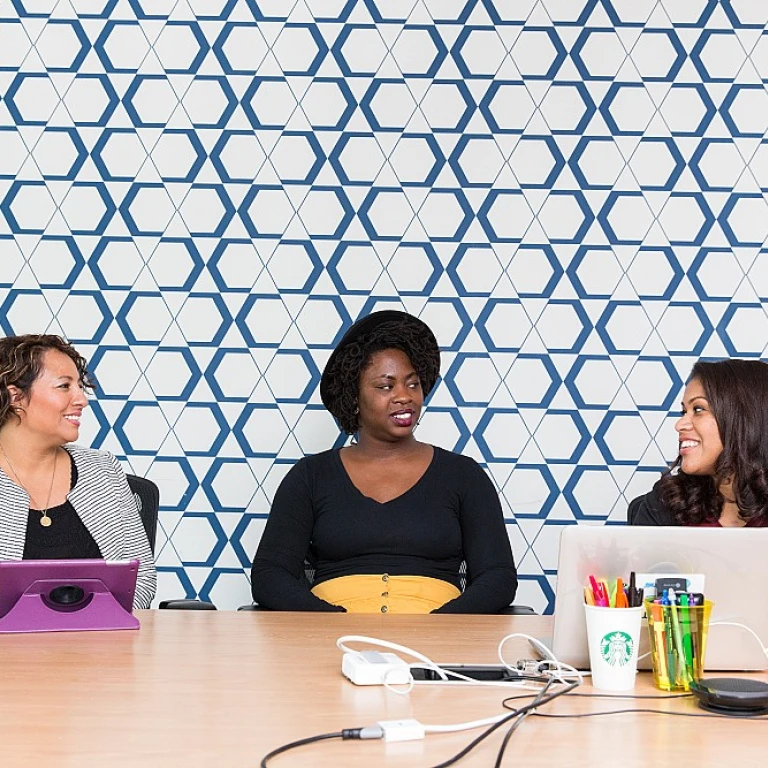
Understanding Permanent Hoteling
Decoding the Concept of Permanent Hoteling
The modern workplace is undergoing a transformation, and one of the emerging trends is the concept of permanent hoteling. This approach is reshaping how office spaces are utilized, offering a flexible alternative to traditional office setups. But what exactly is permanent hoteling, and how does it differ from other workspace models like hot desking or hybrid workplaces?
At its core, permanent hoteling involves employees not having assigned desks. Instead, they reserve workspaces as needed, similar to booking a room in a hotel. This model is particularly beneficial in environments where employees do not need to be in the office every day, allowing companies to optimize their office space and reduce real estate costs.
Unlike hot desking, where employees choose any available desk upon arrival, permanent hoteling requires a reservation system. This ensures that employees have a designated workspace when they need it, providing a balance between flexibility and certainty. This system can be particularly advantageous for companies with a hybrid work model, where employees split their time between home and the office.
Permanent hoteling is not just about saving space; it also reflects a shift in how we view work and office environments. As companies continue to adapt to new work patterns, understanding the nuances of this model becomes essential. For those considering a transition to a hybrid work model, understanding how to request such a change can be crucial. For more insights, check out this guide on requesting a hybrid work model.
Benefits of Permanent Hoteling
Advantages that Shift the Workspace Paradigm
Permanent hoteling is redefining the traditional work environment by offering a revolutionary approach to office space utilization. This method allows companies to optimize their workspace, creating a more flexible and efficient layout that caters to the evolving needs of employees. One of the primary benefits of permanent hoteling is the efficient use of office space. By transitioning to this model, organizations can significantly reduce the need for a large number of desks and meeting rooms, minimizing underutilized space. This is especially valuable in urban areas where real estate is at a premium, allowing companies to manage costs effectively. Moreover, permanent hoteling supports the hybrid workplace model, which leverages modern technology to facilitate a seamless work experience. Employees benefit from the increased flexibility to choose where they want to work—whether at home, in a co-working space, or a designated hoteling desk in the office. This flexibility leads to enhanced employee satisfaction, as individuals can balance work and personal commitments more comfortably. Additionally, a dynamic office environment can foster creativity and collaboration as employees interact with different team members and departments. Furthermore, hoteling systems contribute to a more sustainable workplace. By reducing the number of dedicated office desks and implementing flexible scheduling, organizations can decrease their carbon footprint and support environmental initiatives. Companies can also economize on utilities and maintenance costs, as the space is utilized more efficiently. For employees, the experience of working in a hoteling office is akin to an extended stay in a comfortable, supportive environment. By having access to various office spaces, such as meeting rooms, quiet areas, and collaboration zones, employees will likely become more productive and feel connected to their work. This model also benefits those in long-term remote roles by providing access to a professional workspace when needed. To facilitate the transition to permanent hoteling, it is crucial for organizations to take into account the preferences and needs of their employees. Creating a supportive culture and open communication channels will ensure a smooth adaptation to these new work practices. For more insights on how to successfully request adaptations to your work model, consider exploring this guide on requesting a hybrid work model.Challenges and Considerations
Overcoming Hurdles in the Transition to Permanent Hoteling
As organizations increasingly consider the shift towards permanent hoteling, several challenges and considerations come into play. The concept, while offering numerous advantages such as flexibility and cost savings in office space management, introduces complexities that require strategic foresight. First and foremost, the idea of "desk hoteling"—or shared desk workspaces—can be met with resistance from employees accustomed to personalized desk environments. Shifting to shared spaces necessitates a cultural shift and adaptation on the part of employees, with management needing to advocate the benefits effectively to mitigate potential resistance. The adaptability of office infrastructure is another critical consideration. Ensuring that the physical setting supports a successful transition involves assessing whether the current workspace is equipped to handle this dynamic approach. For instance, will the office layout comfortably accommodate the new hoteling system? Are there enough desks to cater for peak times, or will employees find themselves without a workspace? Extended hotel stays can illustrate parallels here, as hoteling in a corporate environment makes use of shared resources similarly to how hotels manage their room allocations. Nevertheless, companies must keep in mind the distinct difference between housing guest turnover and ensuring employee efficiency and satisfaction over the long term. Moreover, technology is pivotal in overcoming many challenges associated with permanent hoteling. Efficient booking systems are essential to manage desk allocations, preventing overlap and ensuring a seamless transition between office spaces. Investing in cutting-edge desking solutions, such as mobile apps or integrated AI, can aid in providing real-time availability for desks, enhancing employee satisfaction. Another point of concern is maintaining a sense of community and connection within a hoteling office environment. Ensuring that the transition supports employee collaboration without compromising the organizational culture is paramount. Companies can look into fostering a hybrid workplace, mixing permanent desking with hoteling to accommodate diverse work preferences and needs, creating a balanced ecosystem that embraces flexibility without losing the essence of team synergy. Lastly, security implications cannot be overlooked, as shared workspaces demand robust data protection and privacy measures to support housing sensitive information securely. As organizations evolve their workspaces, striking a balance between flexibility, security, and employee engagement will be the cornerstone of successful permanent hoteling initiatives. Ultimately, addressing these challenges with proactive strategies will define the effectiveness of the transition into a future-proof, sustainable work environment. A comprehensive understanding of these considerations enriches strategic planning, ensuring employees have the best desking experience tailored to their dynamic professional needs.Technology's Role in Permanent Hoteling
Harnessing Technology for Effective Hoteling Solutions
In the evolution of office spaces, technology plays a pivotal role in making permanent hoteling a viable option. This modern approach to workplace design necessitates more than just rearranging desks and creating open spaces; it requires integrating technology that supports seamless transitions and efficient use of resources. The advancements in hoteling office solutions are particularly significant. From intuitive desk booking systems that allow employees to reserve their workspaces with just a few clicks, to sophisticated workspace management software, technology is at the heart of making the hoteling model work. This software not only facilitates desk hoteling but also helps in monitoring room and space utilizations, ensuring that every corner of the office is used optimally. Furthermore, as we delve deeper into the culture of extended stays and flexible work environments, mobile apps have become indispensable. These apps offer employees the flexibility to check the availability of suites within their office, reserve a pet-friendly desk for their needs, or even book extended stay spaces in a hotel converted to hybrid office spaces. As a result, employees can maintain productivity irrespective of whether they are in supportive housing or staying long term at a nearby stay hotel. As offices transition to hybrid workplace models, real estate management tools assist in adjusting office space layouts dynamically and efficiently. This becomes crucial in adapting to varying employee numbers throughout the day, catering to both those who work from the office and others opting for hot desking arrangements. The connection between technology and hoteling can’t be overstated; it’s the backbone that makes this flexible work model sustainable. Without these digital tools, the efficiency and benefits of permanent hoteling would be harder to achieve, affecting both employee satisfaction and overall productivity in the long run.Case Studies: Companies Embracing Permanent Hoteling
Innovative Companies Leading the Way
As the concept of permanent hoteling gains traction, several companies are setting the benchmark by effectively integrating this model into their workplace strategies. These organizations are not only reimagining their office spaces but are also redefining how employees interact with their work environment.
Tech Giants and Flexible Workspaces
Some of the most prominent tech companies have been at the forefront of adopting permanent hoteling. By transforming traditional office spaces into flexible work environments, they are providing employees with the freedom to choose where and how they work. This approach not only optimizes office space but also enhances employee satisfaction and productivity.
Real Estate Firms and Hotel Conversions
Real estate companies are also playing a crucial role by converting underutilized spaces, such as hotels, into dynamic workspaces. These conversions offer a unique blend of hotel-like amenities and functional office environments, catering to the needs of modern employees who value flexibility and comfort.
Financial Institutions Embracing Hybrid Models
Financial institutions, traditionally known for their conservative approach, are now exploring hybrid workplace models that incorporate permanent hoteling. By doing so, they are not only reducing real estate costs but also fostering a more agile and responsive work culture.
Long-Term Benefits and Employee Well-being
Companies that have successfully implemented permanent hoteling report numerous benefits, including improved employee well-being and increased collaboration. The ability to work from different locations, whether in a hotel room or a designated office space, allows employees to maintain a healthy work-life balance.
As more organizations recognize the potential of permanent hoteling, it is clear that this trend will continue to shape the future of work, offering a more flexible and employee-centric approach to office design.












